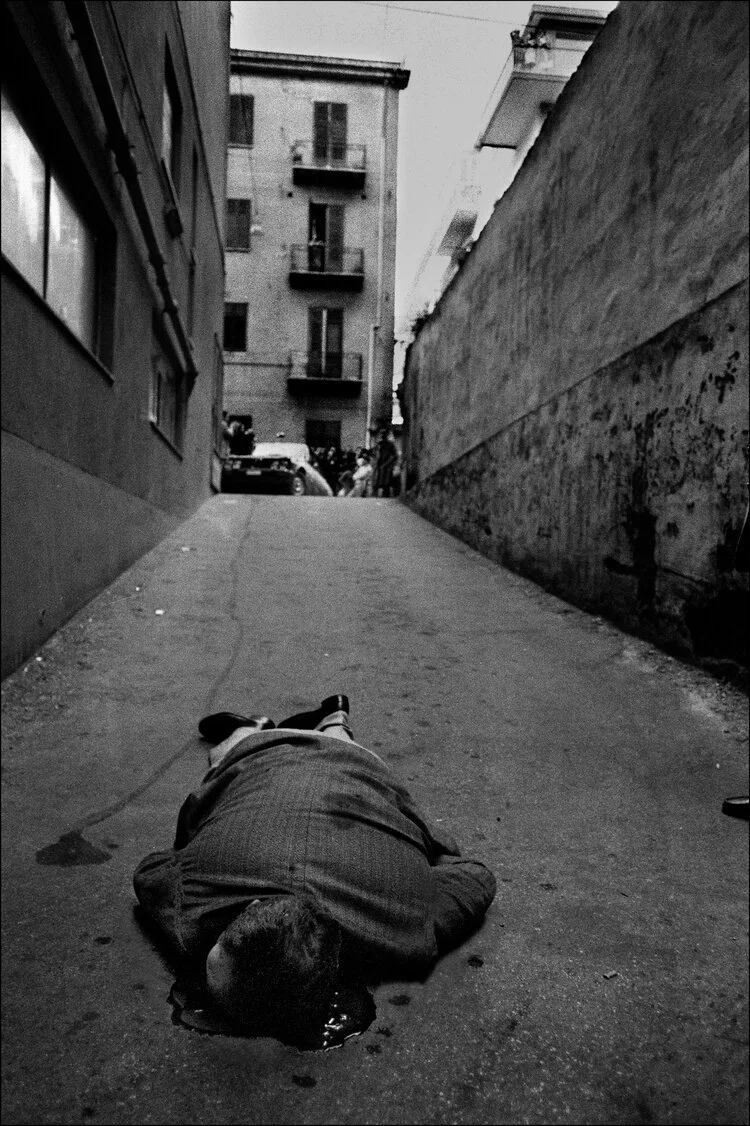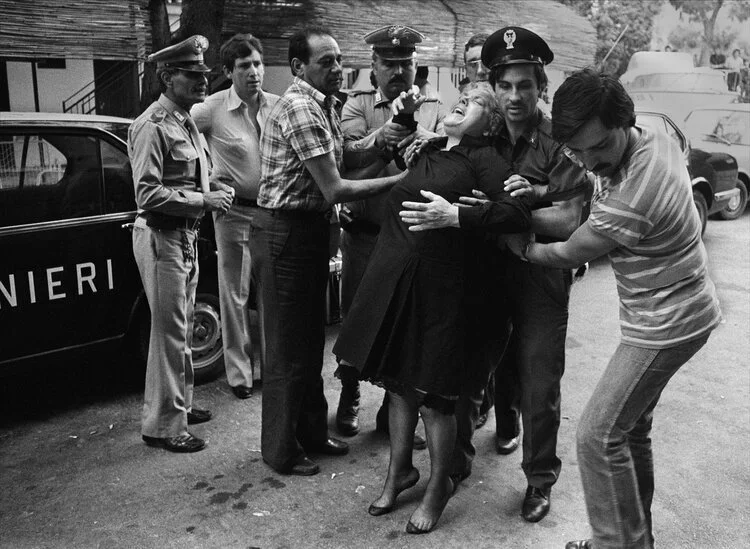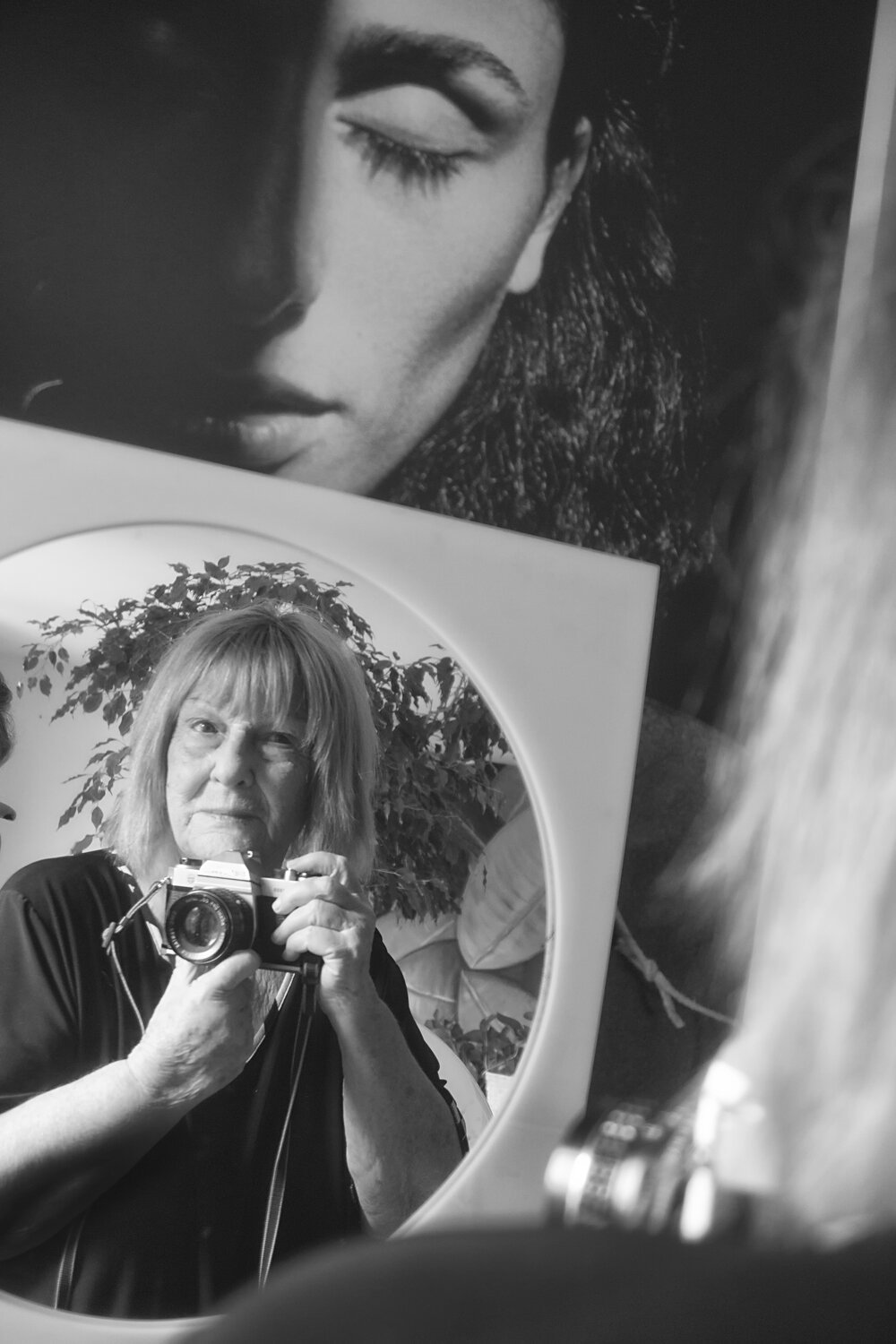From Our Archives: Letizia Battaglia
Letizia Battaglia, Ucciso mentre andava in garage, 1976.
Musée Magazine: Why do you believe that your community would benefit from learning about photography? What do you think the medium has to offer humanity?
Letizia Battaglia: I was saved by photography. I was a young, intelligent, desperate woman. My encounter with photography allowed me to express my thoughts, my rebellion, my social and political commitment. People both young and old who visit the center will experience beauty, based, very simply, on commitment and knowledge. I already know that the people of Palermo are anxiously waiting for the International Center of Photography to get started. Many people are already working on programming, communications, and the search for talent. It will be so damned complicated and laden with beauty, they are almost terrified. Truthfully, my enthusiasm frightens me to no small degree. But I am courageous, and I will overcome my limitations. Photography as documentation, but also as artistic creation, is culture; and culture is fundamental to the growth of a community. A culture that is free from outside influences, one that is revolutionary, is as important as bread that nourishes the body.
Letizia Battaglia, Donna crede che le abbiano ucciso il figlio copia, 1980.
Letizia Battaglia, Opposite: Vincenzo Battaglia, era uscito per comprare i cannoli. Lo hanno ucciso al buio, tra la spazzatura. Sua moglie aveva cercato invano di aiutarlo, 1976.
Musée: Most of your previous work has had a social and political focus, and you have worked extensively in politics yourself. You have used your images to address issues of corrupt authority, women’s rights, and the environment. Will your museum have a political focus as well?
Letizia: I am directing the International Center of Photography and I have already received recognition for my stance against the Mafia and racism. There will be various initiatives promoting those who are marginalized in society, initiatives promoting gays and lesbians, the mentally ill, and dreamers. No one can stop us. We are all too committed to moving these projects forward.
Letizia Battaglia, Michele Reina segretario Provinciale della Democrazia Cristiana, assassinato da due killers davanti alla moglie, 1979.
Musée: During your years documenting organized violence in Sicily you received many threats on your life from the mafia but you did not stop photographing them. Were you willing to die for these images? If yes, why?
Letizia: I am only inclined to live. My entire vital inclination is predisposed to joy, to the construction of beauty, to the victory of justice. It is precisely because I am so immersed in life that I don’t want to limit myself. They will do whatever they want if I annoy them.
For the full version of Letizia Battaglia’s interview, check out Issue Issue No. 18 - HUMANITY.









